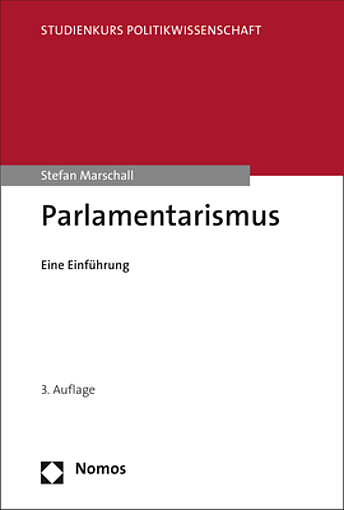Marschall
Parlamentarismus
ISBN 978-3-8452-9411-7
Parlamentarismus ist eine weltweit verbreitete Form der Organisation von Herrschaft. Parlamente finden sich auf verschiedenen politischen Ebenen und in unzähligen politischen Systemen – nicht nur in demokratischen. Mit dieser jahrhundertealten, aber immer wieder neu zu erfindenden Organisationsform setzt sich das Buch grundlegend und umfassend auseinander. Angesprochen werden unter anderem die Geschichte und Theorie des Parlamentarismus, die Organisations- und Arbeitsweise von Parlamenten, ihre Funktionen sowie die Parlamentarismuskritik – all dies auch mit Blick auf neuere Entwicklungen und jüngste Forschung. Im Fazit wird die Zukunft des Parlamentarismus in den Blick genommen und die Konturen eines „neoparlamentarischen Zeitalters“ skizziert. Das Buch nähert sich dem Phänomen aus einer vergleichenden Perspektive. Als Bezugspunkte dienen insbesondere das britische und französische Parlament, der Deutsche Bundestag, der US-amerikanische Kongress sowie das Europäische Parlament.
englischParliamentarianism is a form of organised governance which is widespread all over the world. Parliaments exist on different political levels and in countless political systems, not only democratic ones. This book provides an essential and comprehensive introduction to this form of organisation, which is centuries old and yet is constantly being reinvented. It addresses topics such as the history and theory of parliamentarianism, how parliaments are organised and work, the functions they fulfil and how they have been criticised, while also taking recent developments and the latest research into account. To conclude, the book considers the future of parliamentarianism and outlines the prospects of a ‘neo-parliamentarian’ era using a comparative approach. In doing so, it refers in particular to the British and French parliaments, the German Bundestag, the US Congress and the European Parliament.



